Politics
Japan PM Ishiba resigns after series of bruising election losses
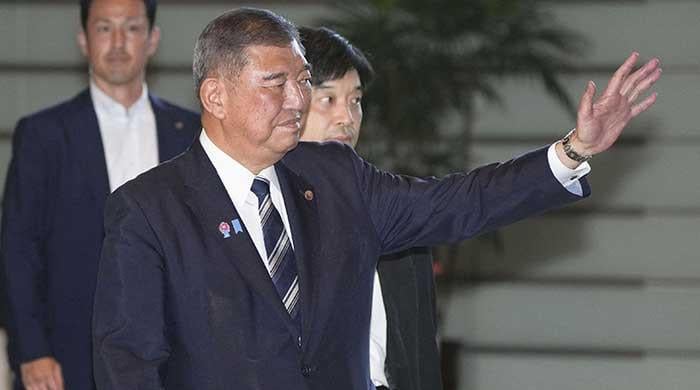
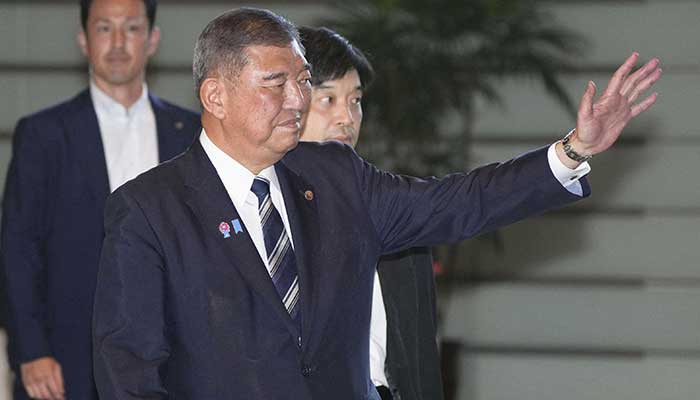
- Rising living costs stoke voter backlash.
- Financial markets shaken by political uncertainty.
- Fiscal dove Takaichi among possible successors.
TOKYO: Japanese Prime Minister Shigeru Ishiba said on Sunday he had decided to resign, ushering in a potentially lengthy period of policy paralysis at a shaky moment for the world’s fourth-largest economy.
Ishiba, 68, instructed his Liberal Democratic Party — which has governed Japan for almost all of the post-war era —to hold an emergency leadership race, he told a press conference, adding he would continue his duties until his successor was elected.
Since coming to power less than a year ago, Ishiba has overseen his ruling coalition lose its majorities in elections for both houses of parliament amid voter anger over rising living costs.
Until Sunday, he had refused calls to step down following the latest of those losses in July’s upper house vote.
He had focused instead on ironing out details of a trade deal with the United States on President Donald Trump’s tariffs, which have roiled Japan’s critical automotive industry and cast a shadow over weak growth.
“With Japan having signed the trade agreement and the president having signed the executive order, we have passed a key hurdle,” Ishiba said, his voice seeming to catch with emotion. “I would like to pass the baton to the next generation”.
Concern over political uncertainty led to a sell-off in Japan’s yen currency and its government bonds last week, with the yield on the 30-year bond hitting a record high on Wednesday.
Speculation over Ishiba’s fate was stoked by the LDP’s decision to schedule a vote for Monday on whether to hold an extraordinary leadership election.
Possible successors
While a fresh leadership race could add pain for an economy hit by US tariffs, markets are focusing more on the chance of Ishiba being replaced by an advocate of looser fiscal and monetary policy, such as LDP veteran Sanae Takaichi, who has criticised the Bank of Japan’s interest rate hikes.
Ishiba narrowly defeated Takaichi in last year’s LDP leadership run-off. Shinjiro Koizumi, the telegenic political scion who has gained prominence as Ishiba’s farm minister tasked with trying to cap soaring prices, is another possible successor.
“Given the political pressure mounting on Ishiba after the LDP’s repeated election losses, his resignation was inevitable,” said Kazutaka Maeda, economist at Meiji Yasuda Research Institute.
“As for potential successors, Koizumi and Takaichi are seen as the most likely candidates. While Koizumi is not expected to bring major changes, Takaichi’s stance on expansionary fiscal policy and her cautious approach to interest rate hikes could draw scrutiny from financial markets,” Maeda said.
Since the party does not have a majority in either house, it is not guaranteed that the next LDP president will become prime minister.
Whoever becomes the next leader may choose to call a snap election to seek a mandate, analysts said. While Japan’s opposition remains fractured, the far-right, anti-immigration Sanseito party made big gains in July’s upper house election, bringing once-fringe ideas into the political mainstream.
Nearly 55% of respondents to a poll by Kyodo news agency published on Sunday said there was no need to hold an early election.
Ishiba’s last act as premier will have been to finalise the trade deal with the US last week, under which Japan pledged $550 billion of investments in return for lower tariffs from US President Trump.
Politics
Bangladesh’s student-led party allies with JI ahead of election
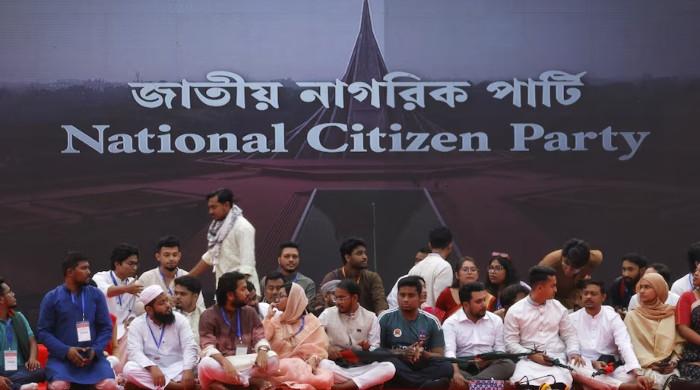
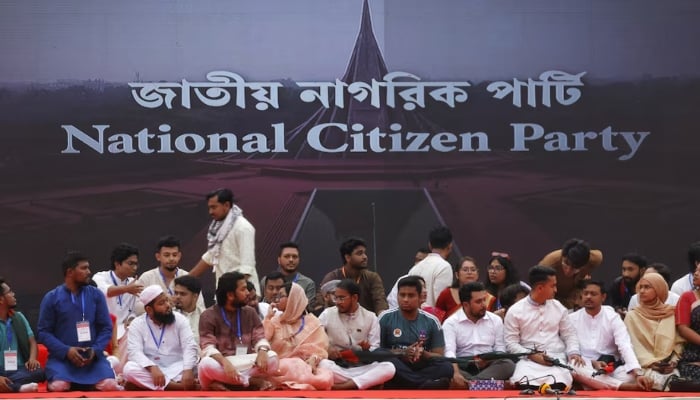
- NCP chief says final list of candidates to be announced on Monday.
- Tasnim Jara, several other leaders quit NCP in protest.
- Critics of NCP’s move say it undermined party’s founding ideals.
DHAKA: The student-led Bangladeshi party born out of the protest movement that toppled Prime Minister Sheikh Hasina has forged an electoral alliance with Jamaat-e-Islami ahead of February’s parliamentary election, stirring internal rifts.
Since last year’s uprising, the National Citizen Party (NCP) has cast itself as a centrist, reformist alternative to nepotism and two-party dominance, but as the election nears, it is struggling to turn street power into voter support.
NCP chief Nahid Islam said on Sunday the party had decided to enter into the alliance for greater unity, adding that the final list of candidates would be announced on Monday. Other NCP figures have described the alliance as a pragmatic step in a fragmented political landscape.
But the decision to join forces with JI has already prompted internal ructions.
Tasnim Jara, a doctor who left a career in Britain to join the NCP, becoming a leader in the party, resigned on Saturday and said she would contest the election as an independent candidate. Several other members have also quit.
BNP regains momentum
Critics of the NCP’s move said it undermined the party’s founding ideals.
“The moral support I had for the NCP will no longer exist due to this ideological mismatch,” said one university student, asking not to be named.
The partnership comes amid broader political realignments, with the Bangladesh Nationalist Party (BNP) — aligned with ailing former Prime Minister Khaleda Zia and effectively led by her son, acting chair Tarique Rahman — regaining momentum following Rahman’s return after nearly 17 years in exile.
The February 12 election will be held under an interim administration headed by Nobel laureate Muhammad Yunus, who took charge after Hasina’s ouster and is seen as crucial to restoring political stability after nearly two years of turmoil.
Politics
Row deepens over vanished river wave in Munich
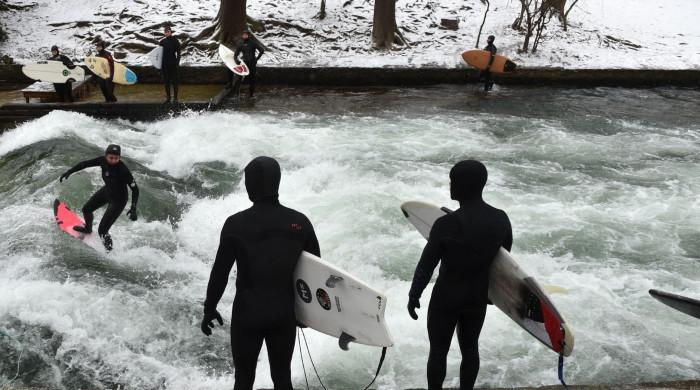

A row over the disappearance of a famous river surfing wave in Munich escalated on Sunday as authorities removed a beam inserted over Christmas to recreate the attraction.
The Eisbach wave on a side branch of the Isar River had been a landmark in the Bavarian city since the 1980s but it vanished in October after annual cleanup work along the riverbed.
Activists had placed a beam in the water early on December 25 to partially recreate the wave, according to German media reports, and hung a banner above the water that read “Merry Christmas”.
But a spokesman for the Munich fire service told AFP the “installation was removed” on Sunday at the request of city authorities.
Activists have made several attempts to reinstate the wave in the city’s Englischer Garten park since October — only to see them reversed.
The local surfers’ association IGSM on Thursday posted a statement on its website saying it had abandoned its campaign to save the wave, accusing city authorities of dragging their feet.
The Eisbach wave was considered the largest and most consistent river wave in the heart of a major city and had become a tourist attraction in Bavaria’s state capital.
Franz Fasel, head of the IGSM, told AFP in July that 3,000 to 5,000 local surfers were using it.
Access to the wave was cut off for several months earlier this year after the death of a 33-year-old Munich woman who became trapped under the surface while surfing at night.
Politics
Three Iranian satellites launched from Russia
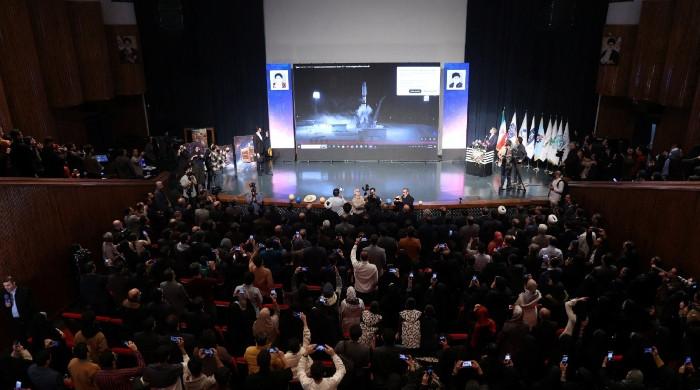
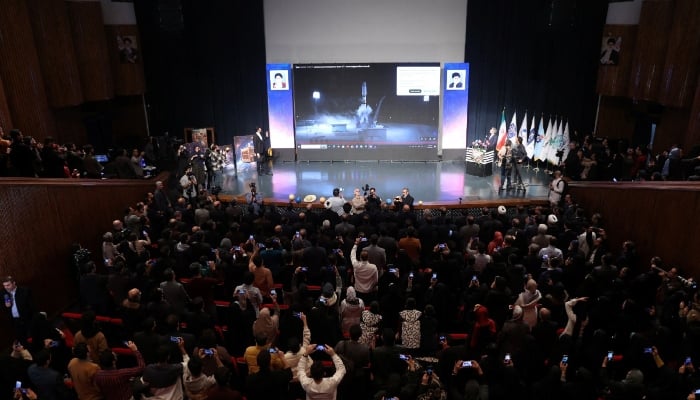
- Iranian scientists produce satellites despite sanctions: envoy.
- Three satellites are for low-earth orbit, says state news agency.
- Iran increasingly relies on Russia to put satellites in orbit.
DUBAI: Three more Iranian satellites were sent into space on Russia’s Soyuz launchers on Sunday, Iranian state media said, as the two US-sanctioned nations extend their space collaboration.
Iran has increasingly relied on its ally Russia to put satellites in orbit in recent years, with the latest three intended to help with monitoring agriculture, natural resources and the environment.
“These satellites were designed and produced by Iranian scientists … despite all the sanctions and threats,” Iran’s ambassador to Russia Kazem Jalali told state TV in reference to Western measures over Tehran’s nuclear programme.
“We are working together (with Russia) in different areas. Some are evident and some we don’t like to clarify.”
Iran’s official IRNA news agency said the three satellites – Paya, Zafar 2,and a second Kowsar – were for low-earth orbit.
Since Russia’s invasion of Ukraine in 2022, Iran and Russia have deepened ties, with Western countries accusing Iran of providing missiles and drones for Russian attacks.
-
Sports1 week ago
Alabama turned Oklahoma’s College Football Playoff dream into a nightmare
-

 Entertainment1 week ago
Entertainment1 week agoRare look inside the secret LEGO Museum reveals the system behind a toy giant’s remarkable longevity
-
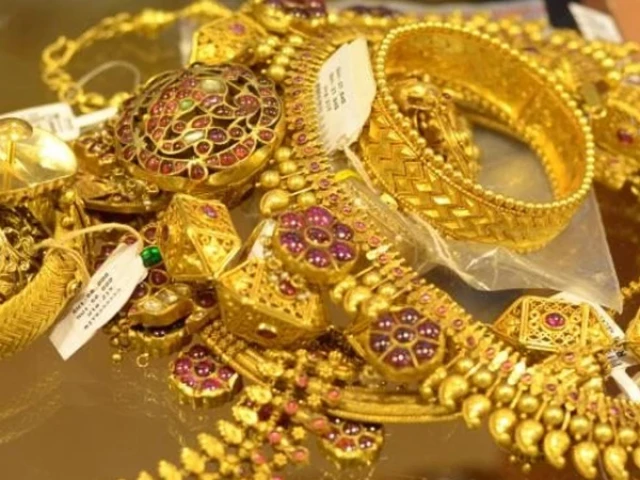
 Business1 week ago
Business1 week agoGold prices in Pakistan Today – December 20, 2025 | The Express Tribune
-

 Entertainment1 week ago
Entertainment1 week agoZoe Kravitz teases fans with ring in wedding finger
-

 Entertainment1 week ago
Entertainment1 week agoIndia drops Shubman Gill from T20 World Cup squad
-

 Tech1 week ago
Tech1 week agoWe Tried and Tested the Best Gifts for Plant Lovers With Our Own Green Thumbs
-

 Fashion1 week ago
Fashion1 week agoColumbia launches star-studded US Curling team uniforms for 2026
-

 Politics1 week ago
Politics1 week agoUS intercepts oil tanker off Venezuelan coast, Reports






